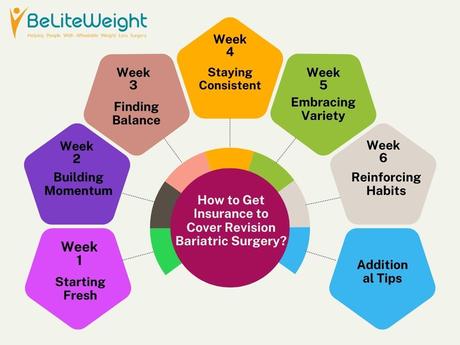Introduction
Ozempic weight loss is a new phrase for many people. I am sure you too wish to know more about it. Don't worry as we are going to provide you with some valuable information about this topic in this blog. But, before we proceed, lets understand some related facts.
Weight loss is a challenge faced by many, with numerous solutions promising varying degrees of success. Losing weight is hard. Many people struggle with it. There are many reasons to lose weight. Health, self-esteem, and doctor's advice are a few. But, there are many challenges.
Modern life makes it tough. We sit too much and eat high-calorie foods. Traditional methods like diet and exercise can fail. People often feel frustrated, ozempic weight loss. Losing and regaining weight is common.
Medical advances bring new hope. Ozempic is one such solution. It was made for type 2 diabetes. Now, it helps with weight loss too.
Ozempic is a diabetic-friendly medication. However, it may help people in losing weight. Ozempic helps by making one feel full after eating. As a result, you consume less food.
Ozempic was shown in tests to help people lose weight. In one trial, those who took Ozempic lost fifteen to seventeen percent of their body weight after about a year. That is an important amount of weight!
Currently, the Olympic system is approved to treat diabetes. Its intended use is not to aid weight loss. Still, many doctors use it "without a prescription to assist patients in losing weight.
Ozempic is the commercial name for semaglutide which is a drug that simulates the hormone glucagon-like peptide-1 (GLP-1). The intestines release GLP-1 shortly after eating. It tells your brain that it's full and satisfied.
Also, GLP-1 delays digestion. It puts off managing the level of sugar in the blood. It is the reason why semaglutide was initially approved to treat type 2 diabetes.
But researchers noticed that GLP-1 drugs such as Ozempic affect hunger and weight. Ozempic enhances fullness and satiety by activating GLP-1 receptors, ozempic weight loss. As a result, people often eat less calories and lose weight.
Most clinical trials revealed people who were obese or overweight lost considerable amounts of body weight when taking semaglutide over placebo groups. A major study revealed roughly fifteen percent weight loss took place in 68 weeks.
If you wish to attempt Ozempic for losing weight, you should consult with your doctor. They will track you and modify the dose as needed. Furthermore, you ought to continue concentrating on eating.
There is not one way in which the Ozempic medication works. Following are some of the ways in which
Ozempic acts like a hormone: Ozempic makes you feel fuller: Ozempic reduces appetite: Ozempic controls blood sugar: Weight loss results:In simple terms, Ozempic makes you feel fuller. It also reduces your appetite and more than that it helps you eat fewer calories, ozempic weight loss. As a result, it leads to significant weight loss when combined with several lifestyle changes.

Before knowing about ' How to get ozempic for weight loss? ', there are several important safety measures and precautions to consider:
Consult Your Doctor Discuss Potential Risks- Ozempic may increase the risk of certain side effects, such as:
- Nausea, vomiting, diarrhea
- Pancreatic inflammation (pancreatitis)
- Thyroid tumor risk
- Your doctor will explain these risks and monitor you closely
- Ozempic should not be used if you:
- Have a personal or family history of medullary thyroid cancer
- Have multiple endocrine neoplasia syndrome type 2 (MEN 2)
- Are pregnant or breastfeeding
In summary, consulting your doctor, discussing potential risks, checking for contraindications, getting necessary tests, and following dosing instructions are crucial safety measures before and during Ozempic treatment for weight loss.
Clinical Trial 1This study included 1,961 persons with weight gain or overweight.
Subjects were offered Ozempic dose of 2.4 mg every week or a placebo for 68 weeks.
Ozempic users has visibly lost an average of 15% of their total body weight.
The control group fell 2.4% on average.
About 87% of the Ozempic participants lost over 5% of their weight.
Clinical Trial 2In this case, liraglutide, a drug used to lose weight, was compared to Ozempic 2.4 mg.
After 68 weeks, Ozempic showed a 9.6% higher weight loss than liraglutide.
Of the participants who took Ozempic, 69% dropped more than 15% of their bodyweight.
Clinical Trial 3This study tested Ozempic's effectiveness for weight loss in 803 obese adults.
After 68 weeks, the Ozempic 2.4 mg group dropped an average of 15.6% of their body weight.
Those taking 1.7 mg lost 11.4% on average.
The placebo group fell just 2.4%.
Ozempic also improved heart attack risk variables, such as waist circumference.
Significant Weight Loss AchievedOzempic (semaglutide) has demonstrated excellent weight loss results during large clinical trials. Individuals who got the 2.4mg once-weekly dose decreased an average of 15% from their total body weight. That too over 68 weeks. Notably, lots of people lost more than 15% of their initial weight. The higher 2.4mg dose was more effective at weight loss than the lower 1.7mg doses.
Improvements in Metabolic HealthBeyond just shedding pounds, Ozempic can improve several markers of metabolic health. The weight loss achieved with the medication can lead to better blood sugar control and reduced risk of developing type 2 diabetes. It may also lower blood pressure levels and improve cholesterol profiles, ozempic weight loss. These metabolic improvements translate to a lower overall risk of heart disease and other obesity-related conditions.
Increased Feelings of SatietyOzempic has the capacity to improve a variety of metabolic health parameters. It is in addition to weight loss. Now, Weight loss with the medicine can bring improved blood sugar management. Also, it will lower chance of developing type 2 diabetes. Now, it also has the capacity to help decrease blood pressure and enhance cholesterol profiles, ozempic weight loss. These metabolic improvements reduce the overall risk of heart disease and other obesity-related illnesses.
Potential for Long-Term ResultsWhile in the short term, scientific trials revealed that individuals lost approximately 15% of their weight after 68 weeks of Ozempic medication. Importantly, this large weight loss was maintained for the remainder of the trial, which lasted over a year. When paired with food and exercise programs, Ozempic may aid in long-term weight loss and metabolic changes.
Dosing ConvenienceOzempic offers the convenience of once-weekly dosing via subcutaneous injection. Compared to taking daily oral medications, this weekly schedule for weight loss medication can be more amenable and easier for patients to adhere to consistently.
Serious Risks Long-Term Safety ConsiderationsPatients should discuss the benefits versus risks with their doctor before starting Ozempic for weight loss. Certain pre-existing conditions may increase the risks. Prompt reporting of any concerning side effects is essential.
Eligibility CriteriaEligibility Criteria Ozempic may be an option if you are obese. In addition, you may qualify if you are overweight and have weight-related health issues like diabetes. However, certain medical conditions can make you ineligible. For instance, thyroid cancer or pancreatitis history may exclude you.
Consultation with Healthcare ProviderFirst, you must consult your doctor or healthcare provider. Next, they will review your medical history and current medications. Then, they can determine if Ozempic is safe for you. After that, your provider will explain the benefits and risks. Moreover, they will set realistic expectations for your weight loss.
Personalized treatment planPersonalized Treatment Plan If recommended, your provider will make a customized treatment plan. For example, they will set the right dosage for you. In addition, they will provide diet and exercise guidance. Furthermore, your plan will consider your weight goals and health status. Most importantly, your provider will closely monitor your progress and adjust the plan as needed.

- Greek yogurt with 1/4 cup fresh fruit
This provides around 1,500-1,700 calories per day with a balance of lean proteins, healthy fats, vegetables, fruits, and whole grains, ozempic weight loss. Be sure to drink plenty of water. Adjust portions as needed based on your personal calorie needs and hunger levels while taking Ozempic. Meal prep can also help with adherence.

Additional Tips
Always consult with a healthcare provider or a nutritionist before starting any new diet plan, especially when taking medications like Ozempic.
Ozempic Weight Loss Before and After Pictures




Oatmeal can be an excellent food choice when taking Ozempic for weight loss. Here are some benefits and tips for incorporating oatmeal into your diet:
- Choose rolled oats or steel-cut oats over instant flavored packets (less processed)
- Cook oats with low-fat milk or non-dairy milk instead of water for extra protein
- Top with fresh/frozen berries, sliced nuts, cinnamon for natural sweetness
- Add a scoop of protein powder or Greek yogurt to boost protein content
- Avoid high-sugar, high-fat toppings like sugary syrups, dried fruit, nut butters
Oatmeal can help maximize feelings of fullness from Ozempic while providing important nutrients like fiber and protein to support your weight loss. Just be mindful of properly measuring portions and avoiding high-calorie toppings.
How much weight can I expect to lose with Ozempic?Ozempic may benefit obese or overweight individuals with obesity-related conditions. But first, consult your provider to see if you qualify, ozempic weight loss. Then, follow their personalized treatment plan combining Ozempic with diet and exercise. Overall, consistent medical monitoring is crucial for safe and successful weight loss.
Is Ozempic safe for long-term weight loss?In clinical trials, adults taking the 2.4 mg dose of Ozempic lost approximately 15% of their body weight on average over 68 weeks. Some lost over 15%. However, individual results may vary based on factors like diet, exercise, and metabolism.
How does Ozempic work for weight loss?While approved for diabetes treatment, Ozempic's long-term safety for weight loss beyond 1-2 years is still being studied. It may increase the risk of side effects like pancreatitis or thyroid tumors with extended use. Close medical monitoring is recommended.
Do you gain weight after stopping Ozempic?Ozempic works for weight loss by mimicking a hormone called GLP-1, which helps regulate appetite and food intake. It increases feelings of fullness, slows down stomach emptying, and reduces appetite, leading to lower calorie consumption and weight loss.
How much weight can you lose in a month on Ozempic?Yes, weight gain is possible after stopping Ozempic, especially if lifestyle changes are not maintained. Ozempic helps manage weight by suppressing appetite, and stopping it can lead to a return of previous eating habits and weight gain.
What are the most common Ozempic side effects?On Ozempic, you can typically lose around 5-10 pounds in a month, but individual results may vary based on factors like diet, exercise, and dosage.
Can I take Ozempic if I have type 2 diabetes?The most frequently reported side effects of Ozempic include nausea, vomiting, diarrhea, constipation, abdominal pain, and injection site reactions. Many of these gastrointestinal effects tend to subside over time.
Who should not use Ozempic?Yes, Ozempic is FDA-approved for both type 2 diabetes treatment and weight loss at different dosages. It can improve blood sugar control while promoting weight loss in those with diabetes.
Do I need to follow a special diet with Ozempic?People who should not use Ozempic include those with a personal or family history of medullary thyroid carcinoma (MTC) or multiple endocrine neoplasia syndrome type 2 (MEN 2), individuals with a known hypersensitivity to semaglutide or any of its ingredients, and those with a history of serious allergic reactions to similar medications. It's also not recommended for use in people with certain other medical conditions without consulting a healthcare provider.
Yes, combining Ozempic with a reduced-calorie, balanced diet is crucial for optimal weight loss. A diet high in protein, fiber, and healthy fats while limiting processed carbs is typically recommended alongside Ozempic treatment

